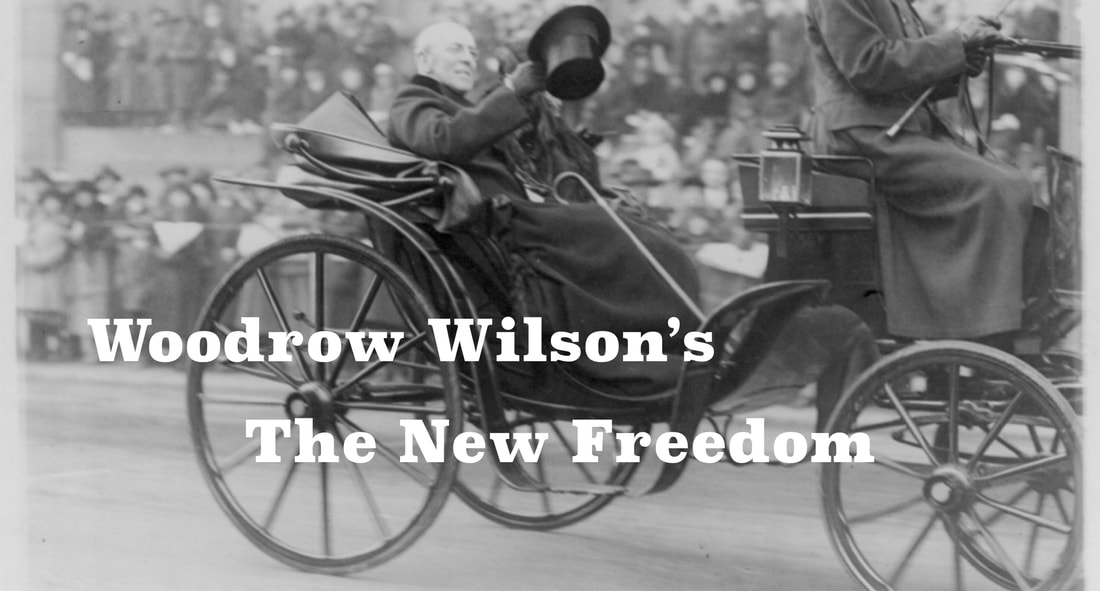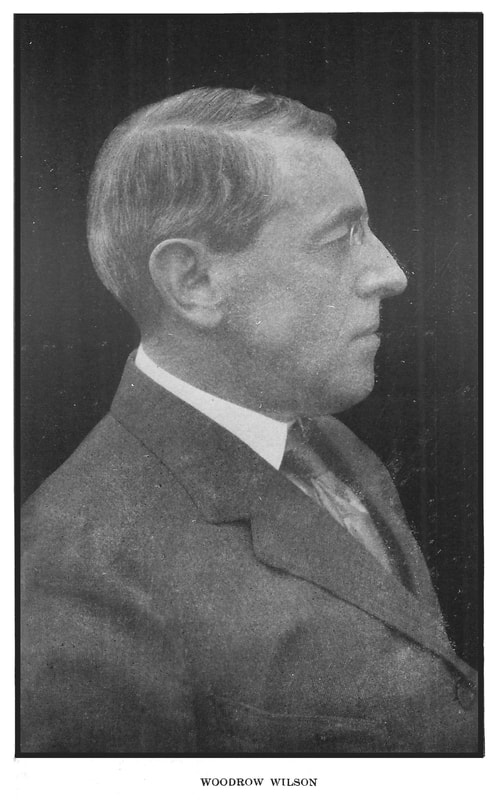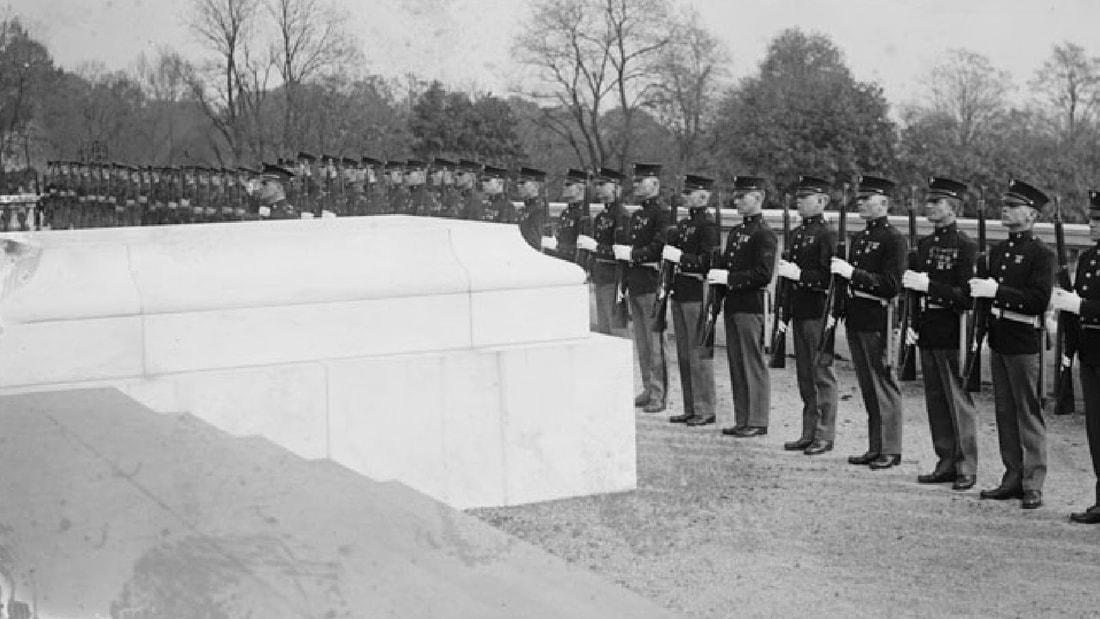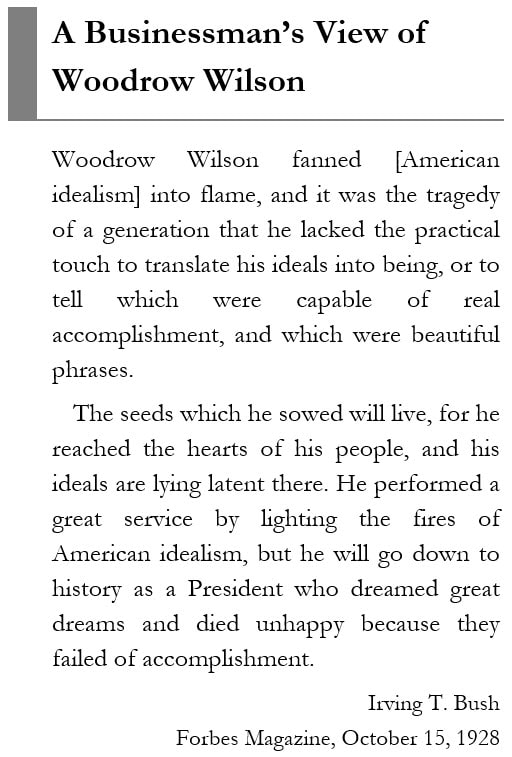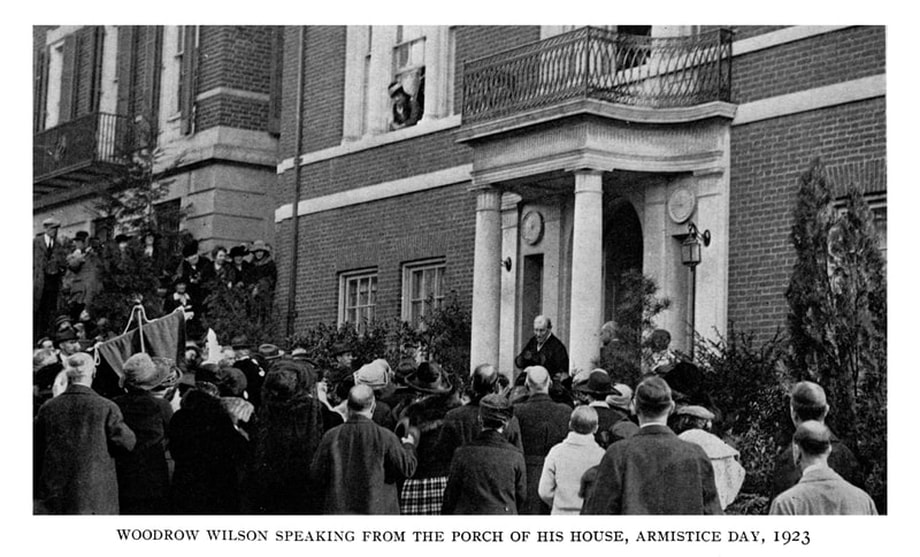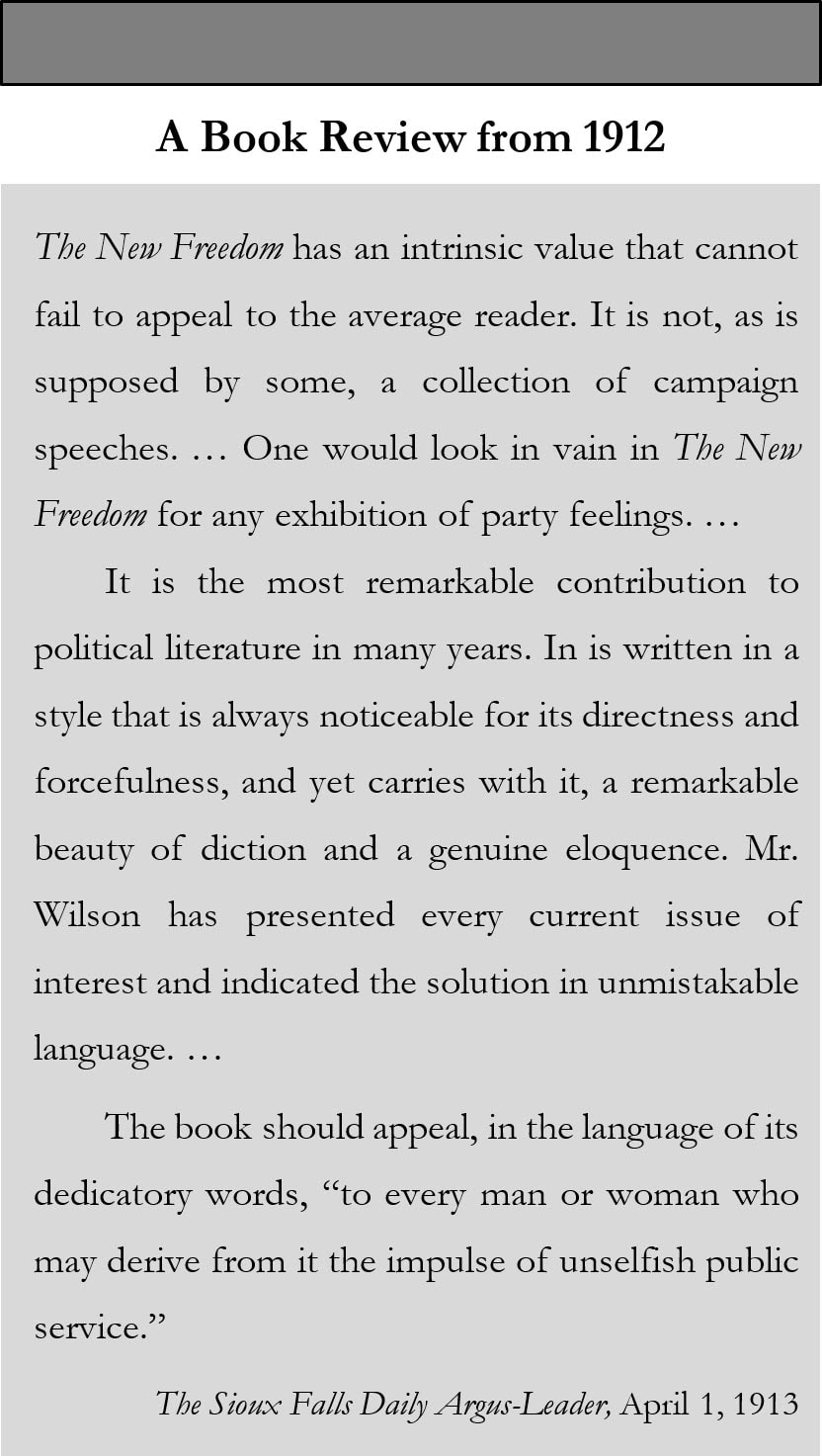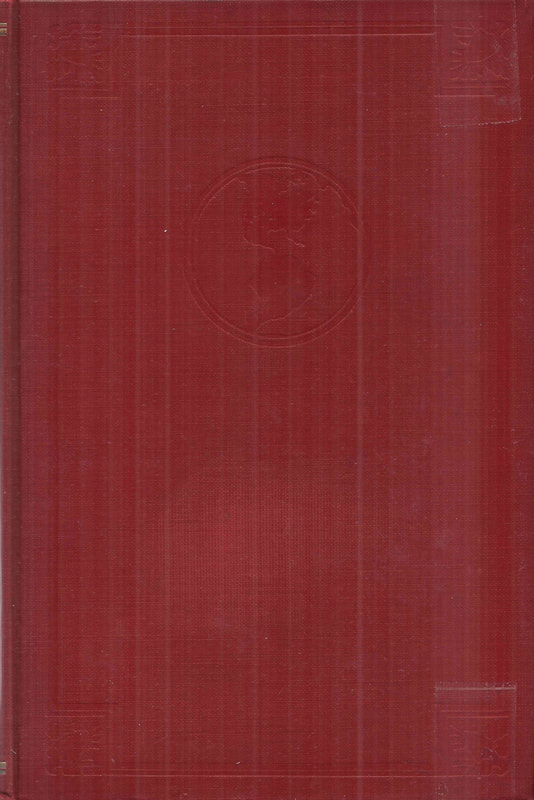Woodrow Wilson's Book: "The New Freedom"
|
|
Date Published: June 11, 2021
Date Modified: February 3, 2024 |
Former President Woodrow Wilson waving his top hat to crowd from open carriage during Armistice Day procession for the first burial at the Tomb of the Unknown Soldier. This is the procession that Ida M. Tarbell writes about in the passage below.
A Review of "The New Freedom" by Woodrow Wilson
- A 1912 Newspaper Editorial: The Birth of New Freedom
- An Excerpt from Ida Tarbell's Peacemakers
- This Author's Perspective
A 1912 Newspaper Editorial: The Birth of New Freedom
|
“The nomination of Woodrow Wilson for President means a new democracy. It means a new epoch in American self-government. The democratic party at last has broken its shackles. It has emancipated itself. … Woodrow Wilson will be the first President of the United States in a generation to go into office owing favors to nobody except the American people and under obligations to nothing except the general welfare. …
“No Wall Street financiers provided the money to finance his campaign. He has no debt to pay to corrupt politics or to corrupt business. He was nominated by the irresistible force of public opinion and by that alone. He stands before the country a free man. … “The American people have set out to regain possession of their government, and Woodrow Wilson was nominated because he embodies that issue.” |
The Elmira Star-Gazette, July 5, 1912
An Excerpt from Ida Tarbell's Peacemakers: Blessed and Otherwise
|
I read "The New Freedom" because of a passage in Ida Tarbell’s book Peacemakers—Blessed and Otherwise (review is here). She describes the ceremony of the laying to rest the first occupant at the Tomb of the Unknown Soldier.
As part of the moment, she writes about the scene that transpires as the crowd notices the now, former President Woodrow Wilson—the World War I war-time President who called this boy to battle—as he passes with his wife in a carriage. |
Picture from Tomb of the Unknown Soldier in 1922
|
The passage is so powerful that I am including it here. It is a long passage, but it seems so relevant to this review as Ida Tarbell’s words are so alive and descriptive that you feel the love of the people for the man who spoke the words in this book: The New Freedom. (Be sure to read the sidebar which contains Irving T. Bush's perspective on Woodrow Wilson.)
|
The ceremony was for the dead sacrifice, but the feature of it which went deepest to the heart and brought from the massed crowds their one instinctive burst of sympathy and greeting was the passing, almost at the end of the procession, of the War’s living sacrifice—Woodrow Wilson.
The people had stood in silence, reverently baring their heads as the bier of the soldier passed, followed by all the official greatness of the moment—the President of the United States [Warren G. Harding], his cabinet, the Supreme Court, the House, the Senate, Pershing [General John J. Pershing, Commander in Chief of the American Expeditionary Forces], Foch [Ferdinand Jean Marie Foch, Supreme Allied Commander]. And then, quite unexpectedly, a carriage came into view—two figures in it—a white-faced man, a brave woman. Unconscious of what they were doing, the crowd broke into a muffled murmur—”Wilson!” The cry flowed down the long avenue—a surprised, spontaneous recognition. It was as if they said: “You—you of all living men belong here. It was you who called the boy we are honoring—you, who put into his eye that wonderful light—the light that a great French surgeon declared made him different as a soldier from the boys of any other nation.” “I don’t know what it is,” he said, “whether it is God, the Monroe Doctrine or President Wilson, but the American soldier has a light in his eye that is not like anything that I have ever seen in men.” Woodrow Wilson, under God, had put it there. His place was with the soldier. The crowd knew it, and they told him so by their unconscious outburst.
They cheer him as he passes—and there are chokes in their voices—and always tenderness. Let it be known that he is in his seat in a theater, and the house will rise in homage.
Let his face be thrown on a screen, and it will receive a greeting that the face of no other living American will receive. |
How could I not read the words of this man—this man of the people? This entire book is of such a quality and of such political relevance a hundred years later that one-liners will be found on almost every page.
This Author's Perspective
|
There probably aren’t enough superlatives to capture the beauty of verse but terseness of political insights presented in this book published in 1913. As usual, I pick one chapter that stands out above the rest, and in this book, it is the chapter entitled “Life Comes from the Soil.”
This chapter challenged one of my long-held beliefs that change needs to start at the top. Mr. Wilson believed differently. He believed that all true change of quality must start from the bottom. And in a still-agricultural America, his words found welcoming hearts and somehow struck home with me because I too believe that although a leader must be at the forefront of change, what to change and how to change is best found in the eyes of the common man: When I look back on the processes of history, when I survey the genesis of America, I see this written over every page: that the nations are renewed from the bottom, not from the top; that the genius which springs up from the ranks of unknown men is the genius which renews the youth and energy of the people. … The utility, the vitality, the fruitage of life does not come from the top to the bottom; it comes, like the natural growth of a great tree, from the soil, up through the trunk into the branches to the foliage and the fruit. |
The great struggling unknown masses of the men who are at the base of everything are the dynamic force that is lifting the levels of society.
A nation is as great, and only as great, as her rank and file.
A nation is as great, and only as great, as her rank and file.
Woodrow Wilson, "The New Freedom"
What he writes about in 1912 will strike home with today’s reader. Woodrow Wilson writes of the discontent of the common man with the two political parties. In the last election I wanted a sign in my front yard that said, “I want to vote for someone! I am tired of voting for the lesser of two evils.” Wilson said it this way, "The day has come when men are saying to each other: 'It doesn’t make a peppercorn’s difference to me what party I have voted with. I am going to pick out the men I want and the policies I want, and let the label take care of itself.' "
|
Overall, it is amazing to read that democracy has always struggled with keeping absolute power from corrupting absolutely. It is comforting to know that this country saw the rise of a man of such ideals when party bosses were trying to not just run their cities and states, but the entire country.
I think I will close out this review with an observation of Woodrow Wilson to which I can only say, “Amen.” America is great in proportion as she can make sure of having great men in the next generation. She is rich in her unborn children; rich, that is to say, if those unborn children see the sun in a day of opportunity, see the sun when they are free to exercise their energies as they will. If they open their eyes in a land where there is no special privilege, then we shall come into a new era of American greatness and American liberty. |
Read this book to understand the low quality of politicians we have in this country … or if you are one of the good politicians, be – as Woodrow Wilson hopes you will be – inspired!
